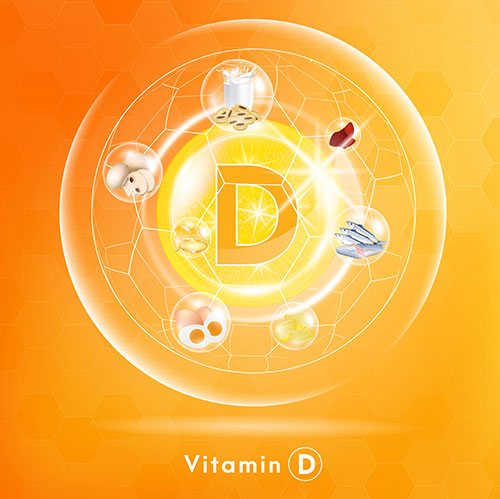The Importance of Vitamin D
Autobiography of Vitamin D
I, Vitamin D:
Hello everyone. After giving it a lot of thought, I have decided to write about myself considering the recently increasing curiosity and buzz about me among you, humans. I belong to the fat-soluble group of a big family of vitamins. Although we have been present for ages, only in the 20th century did your scientists discover us. My brother vitamin A, was the first one to be discovered in 1913 and soon the rest of us followed. Many consider my origin a mystery, with some believing me to be a hormone and some a vitamin. Wait! I will take all your questions at the end.

The high incidence of rickets among children in the United Kingdom, especially in Scotland, led to my discovery with a lot of research on animals and epidemiology. When people were looking all over the world for me cluelessly, I was literally present under their skin (picture proof included). Not for long though; I knew you intelligent species would find me one day and you did so. I only need sunlight to be produced. That’s why some fondly call me “the sunshine vitamin”.
Usually, I don’t talk highly about myself, but this is my autobiography and I have decided to give it a try. You all very well know that I help your intestine absorb calcium more effectively; I help your blood maintain proper calcium and phosphate level and help your bones grow and maintain strength; I also help your brain synthesise serotonin and dopamine. But I have many other roles in reducing the inflammation in your body and preventing cancer, heart disease and pneumonia, and your scientists are working to know how exactly I do it!
Are you bored already? I am ready for your questions.
Random Human 1: Hi Mr Sunshine, I am from India and obviously exposed to a lot of sunlight, but my blood reports say I am deficient in it. How is it possible?
Vitamin D: Your apartment culture, indoor working pattern and lifestyle have reduced sunlight exposure and for those of you who have enough sunlight exposure but less of me (I may get into racist controversy if I explain;)), have a look at the picture yourself.

Random Human 2: Should we all routinely check vitamin D level in blood regularly?
Vitamin D: Only those with osteoporosis, Celiac disease and those taking medicines that interfere with your metabolism should check my levels periodically. The rest of you can take a diet rich in vitamin D, available over-the-counter supplements and avail good sunlight exposure.

Random Human 3: D1! D2! D3! ##@#%! What exactly should we take?
Vitamin D: D1 is non-existent now. D2 is a synthetic form (from plant source) and D3 is natural (mostly animal source, synthesised in the skin). D3 is more efficient in improving the functionality and hence is the best choice.
Random Human 4: My mother was diagnosed with osteoporosis and was advised anti-osteoporotic medications and calcium supplements. Can you help her in any way?
Vitamin D: Definitely. Your doctor will check her vitamin D level before starting any treatment for osteoporosis. It should be normal for the anti-osteoporotic medicines to work effectively. Most of the calcium supplements come added with vitamin D at daily recommended doses which is enough. If the blood level is insufficient or is at borderline, booster doses of vitamin D (60,000 units) must be taken every week for 8-12 weeks. There is no need to recheck the blood level value after supplementation as the efficacy of supplementation has been well-proven.
Okay, it’s wrap-up time. Nice talking to you people. If you have any more queries about me, you can always talk to your doctor.

Dr. P. Keerthivasan
Consultant Orthopaedics & Spine Surgery
Kauvery Hospital, Chennai

